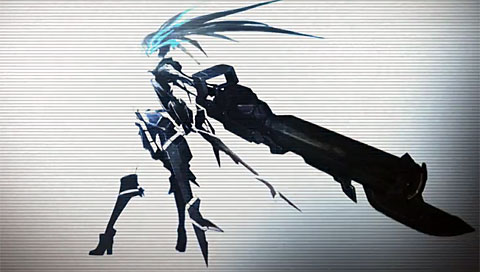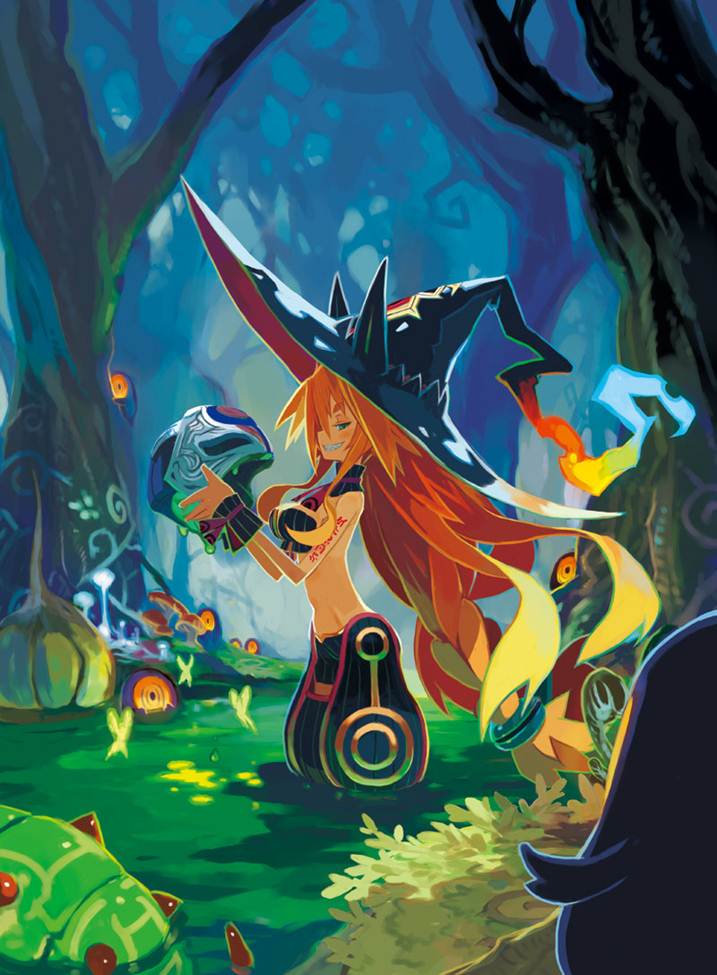We at T-ONO recently had a chance to interview NIS America producer Jack Niida at their annual press event in San Francisco. With the upcoming release of Atelier Meruru on the PlayStation 3 and Disgaea 3: Absence of Detention on the PlayStation Vita, a lot of fans are wondering what NISA has been up to these days. Here's what we found out.
T-ONO: As we all know, Atelier Meruru is the last game in the Arland Atelier series. What's been your favorite aspect of this specific series to date as opposed to the PlayStation 2 games like Atelier Iris and Mana Khemia?
Jack Niida: At least for me, one of my favorite things is that it's not RPGish, but at the same time has a lot of simulation factors to it: a lot of alchemy, more exploration and adventure parts of the game. Graphics-wise, it is also beautiful. It's GUST's first cel-shade 3d style, and for the series, and they were able to create a really good series for the PlayStation 3. That's why it's one of my favorite series from them.
T-ONO: It's definitely helped the series reach out to a broader audience than the old PlayStation 2 series.
Jack Niida: Absolutely. The older ones were really fun too, but it was completely different.
T-ONO: Especially since the PlayStation 3 doesn't have as many JRPGs right now, like the PlayStation 2 did.
Jack Niida: Yah, it's a really tough time right now. I wish that there were more, but it's really hard and expensive to make console games for the PlayStation and Xbox. Lots of Japanese developers are focusing on the PSP in Japan, as it's still a very strong system overseas. So you have to look out and try to pick out specific titles that you'd like to bring over here to the U.S.
T-Ono: Another one that people are very interested in is Black Rock Shooter.

Jack Niida: Yesssssssss! We get a lot of that. All I can say is that it is coming. We are working on it, in fact the text edit and the localization edit is done. The only thing that has yet to be done is the programming which is the hardest part obviously. The project is still ongoing, but we hope to release it sometime this year. The game itself is looking very good, other than that I can't really say too much because of contract. Not to mention that I can get in serious trouble. But please look forward to it, it is coming this year.
T-ONO: So XSEED announced yesterday that they were doing downloadable games solely for the PlayStation Vita and Nintendo 3DS. Has NISA looked into doing some of those as well?
Jack Niida: It really depends on the title. If we feel that the title has a broad enough audience, then we'll put it in retail stores and digital. But if it's a smaller niche title that might not be as broad, we will release it as a digital only game. An example like Legasista, a dungeon crawler, classic 2D style, probably doesn't have a huge audience like Disgaea does so we decided digital only. So in our case, it's more a case-by-case basis.
T-ONO: Going back to what you were saying about the PSP market, we know that NISA is mostly a localization group. What does NIS America have to say about American tastes and gamers influence what Nippon Ichi Software creates in Japan?
Jack Niida: Yes, and I think that's why our headquarters is working on The Witch and the One Hundred Knights. We always try to get as much feedback as we can from the American fans through our forums and email listing. We gather that information and feed it back to Japan and see what we can translate and do some work. And obviously they don't know what Westerners like and how they react to games. However, once they do get it, they're very happy about it because they like to hear all these other comments whether it's good or bad. Then they analyze all of the information and say, “hey, Americans like JRPGS, but they also like all these other genres out there. Like action or whatever it is.” The Witch and the One Hundred Knights is one of those titles where they're trying something different to expand their audience.
T-ONO: So you think that they're really receptive to what NIS America says then.
Jack Niida: Yes, at least once or twice a year the head programmer or director from NIS Japan will come to these types of events and talk to press to receive different types of feedback. They'll say, “guys they're saying all this. They might have a point, so let's try to do something different with our next game.” The team over there is actually quite small and little processes can influence what they develop out there.
T-ONO: As someone involved in the video game industry, I'm sure that you've heard other game designers like Hideo Kojima say that Japan needs to make more Western-style games with bigger budgets, hi-def graphics, etc. Especially since a lot of games tend to be more along of the lines of what Westerners would consider niche or “hardcore” titles. For example, The Witch and the Hundred Knights is a much darker title than other NIS titles. Do you think this influences the direction in which NISA chooses to go?

Jack Niida: I think that the large developers have a good point too. However, there's still an audience for these Japanese games. If the game is good, and is something that audiences in the United States think will be good, and may not be mainstream, it may still work out in the US. Just because it's a classic JRPG doesn't necessarily mean that it's going to be a failure. It really depends on how they work it out. You don't really need a huge budget to create a good game and when you're working with a smaller team, you can take more risks than a multi-million dollar developer. When you're a large developer you really have to go with mainstream tastes, but when you're a smaller developer you can cater more towards hardcore audiences. These audiences will always take an interest in these types of games and that's why we've stayed relatively within this niche genre. However, at the same time we need to expand too and hence The Witch and the One Hundred Knights.
Again, prominent game developers, like Mr. Kojima, do have a point. However, when you're a smaller developer or publisher you have a different mindset of making a living. We have only about twenty people max or so in our office, so it doesn't really take too much to stay alive. Unlike if you have around three hundred employees, it's a lot tougher.
T-ONO: In a related question, I know that you guys receive a lot of requests for visual novel localizations such as Utawarerumono and Tears to Tiara.
Jack Niida: Yes, not only do we receive a lot of those requests on the forums, but a lot of our staffers love visual novels. So we do get a lot of feedback there too. I think that's the only genre where we haven't been brave enough to step into just yet.
Of course games like Phoenix Wright are huge success. But at the same time that was just a little bit different from a pure visual novel type game. So we're not 100% sure if that would work out just yet, but we may try it out sometime. However at this time, I can't really say that we would do it. It is something that we've been considering for a very long, long time.
And like I said, there are quite a few guys out there in our staff who are telling me every day why this game is so good and that we should try to acquire it, and that it'll do well in the U.S.
T-ONO: I know that companies such as Aksys and XSEED have attempted to bring over visual novel titles such as Corpse Party and 999.
Jack Niida: Yah, we definitely should talk to those guys and see how they did on those titles. If they did well enough, then we might try it out too. It really all depends. Again, we do get those requests all the time, even from our own staff, but it's a very hard wall to break through. They're very big risks.
T-ONO: However, if you were to do it, would you consider delivering them more as a downloadable title rather than in brick-and-mortar stores?
Jack Niida: Yes, most likely as it would be tougher to put them into retail stores. It's not exactly as though we can say, “we have a new game, can you put it in.” Obviously if they don't like it, they can say that this time they'll pass. We’d have this huge inventory that's going to go nowhere. So in that case it might be safer if we go digital only.
The main concern with visual novels is that they have so much text and the translation process does cost a lot of money. So in order for us to pursue it, it would need to match perfectly. Then we would have the courage to go ahead. Just let us know if there's a huge audience.
T-ONO: How has NIS America handled the departure of Ryuta Sato who has lead various past titles as translator?
Jack Niida: Ryuta is still within the NIS group, but he's gone back to Japan for his own personal reasons. He thought that Japan is where he should live. He's still working for the NIS group.
T-ONO: How has that affected the translation process?
Jack Niida: We did hire a new translator, his name is Toshi.
T-ONO: Is he going to be wearing the Prinny suit?
Jack Niida: We're going to make him wear the Prinny suit. It's the initiation, everyone has to go through it.
T-ONO: Have you ever tried to wear it?
Jack Niida: I've tried, but I wasn't strong enough. * laughs * That thing is actually pretty heavy.
T-ONO: With NIS America new to anime, how has sales been?
Jack Niida: Surprisingly, sales have been very good. However, since our team is very small we can get through without having to sell a huge volume. We've been making a small profit on it, but at least it's not in the red. It's enough to keep us going. As long as there are anime fans here in the US, we'll keep going. Even if it is a small margin. Just because fans are out there and it's very hard to get DVDs and Blu-Rays these days that's not bootlegged. So there's always going to be an audience that prefers physical copies than ripped ISOs.
T-ONO: Thank you for your time.
Jack Niida: Thank you.

